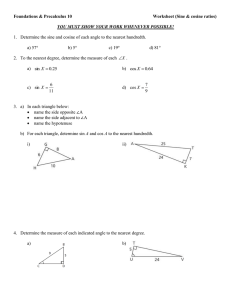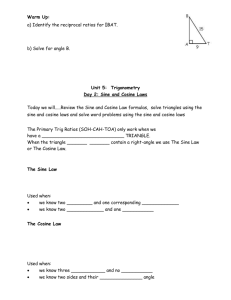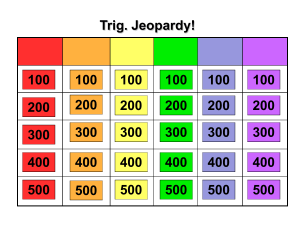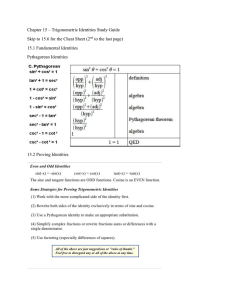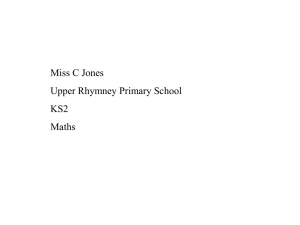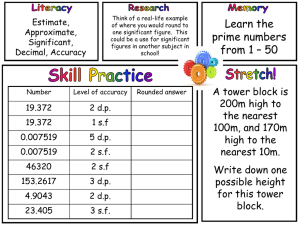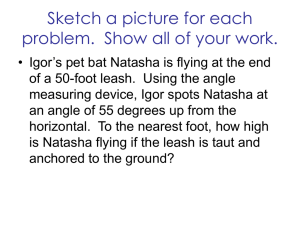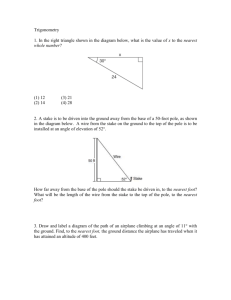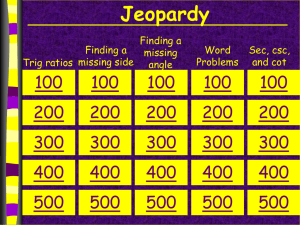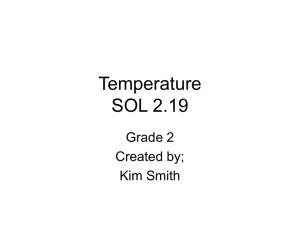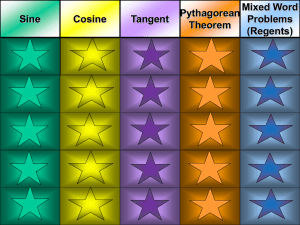MR12 Lsn 86 - Forest Hills High School
advertisement
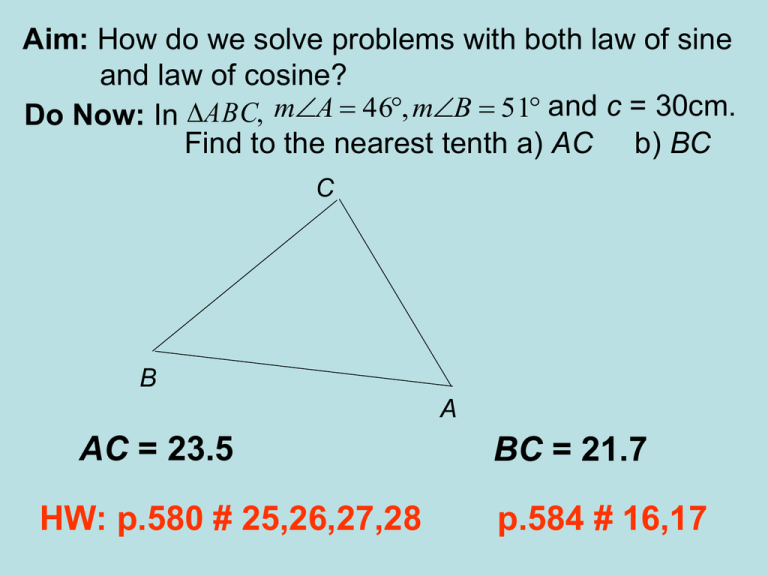
Aim: How do we solve problems with both law of sine and law of cosine? Do Now: In ABC, mA 46, mB 51 and c = 30cm. Find to the nearest tenth a) AC b) BC C B A AC = 23.5 HW: p.580 # 25,26,27,28 BC = 21.7 p.584 # 16,17 To determine the distance between points, A and B, on opposite sides of a swampy region, a surveyor chose a point C that was 350 meters from point A and 400 meters from point B. If the measure of ACB was found to be 105°, find the distance across the swampy region, AB, to the nearest meter. Should we use the Law of Sine or Cosine to solve this problem? The lengths of two sides and the measure degree of the included angle are known, therefore, we should use the Law of Cosine c 350 400 2 350 400cos105, 2 2 2 c 122500 160000 280000cos105 2 c 282500 72469.3 354969.3, 2 c = 596m To determine the method we should use for a particular problem: Law of Cosine: SAS SSS Law of Sine: ASA AAS SSA Notice that AAA is not good for either law. In ∆PQR p = 25, q = 12, r = 20. Find each angle to the nearest degree. (mP 100, mQ 28, mR 52) In order to know how much seed to buy for a triangular plot of land, Kevin needs to know the area of the plot. The lengths of the sides are 15 feet, 25 feet, and 30 feet. a. Find to the nearest degree the measure of the smallest angle b. Using the answer found in part a), find to the nearest square foot, the area of the plot of land. a. 30° b. 188 The angle of elevation from a ship at point A to the top of a lighthouse, point B, is 43. When the ship reaches point C, 300 meters closer to the lighthouse, the angle of elevation is 56. Find, to the nearest meter, the B height of the lighthouse, BD. 56 43 A C 300 754 m D The beam of a searchlight situated at an offshore point W sweeps back and forth between shore points A and B. Point W is located 12 kilometers from A and 25 kilometers from B. The distance between A and B is 29 kilometers. Find the measure of AWB to the nearest tenth degree. 292 = 122 + 252 – 2(12)(25)cos W 600cos W = – 72, W ≈ 96.9
